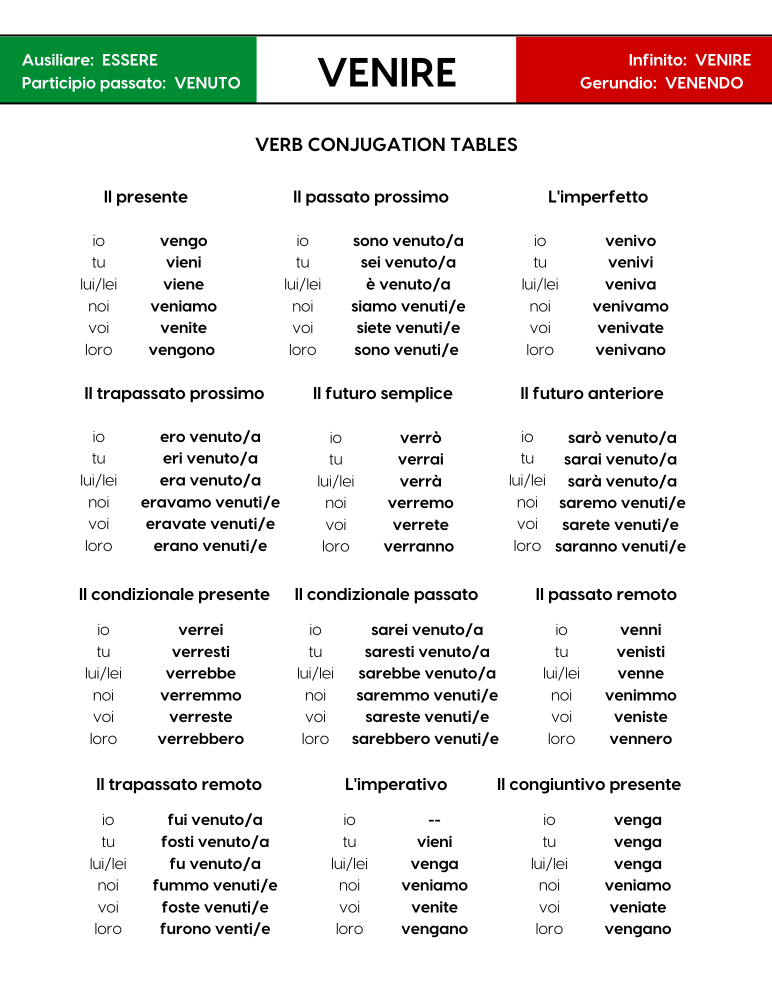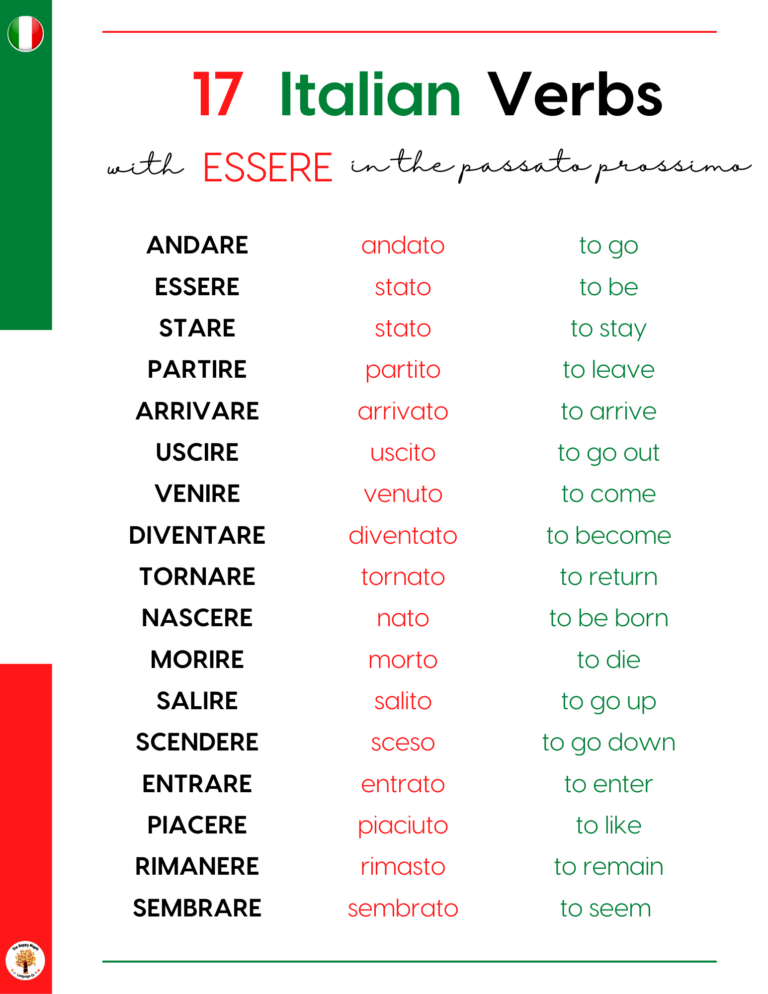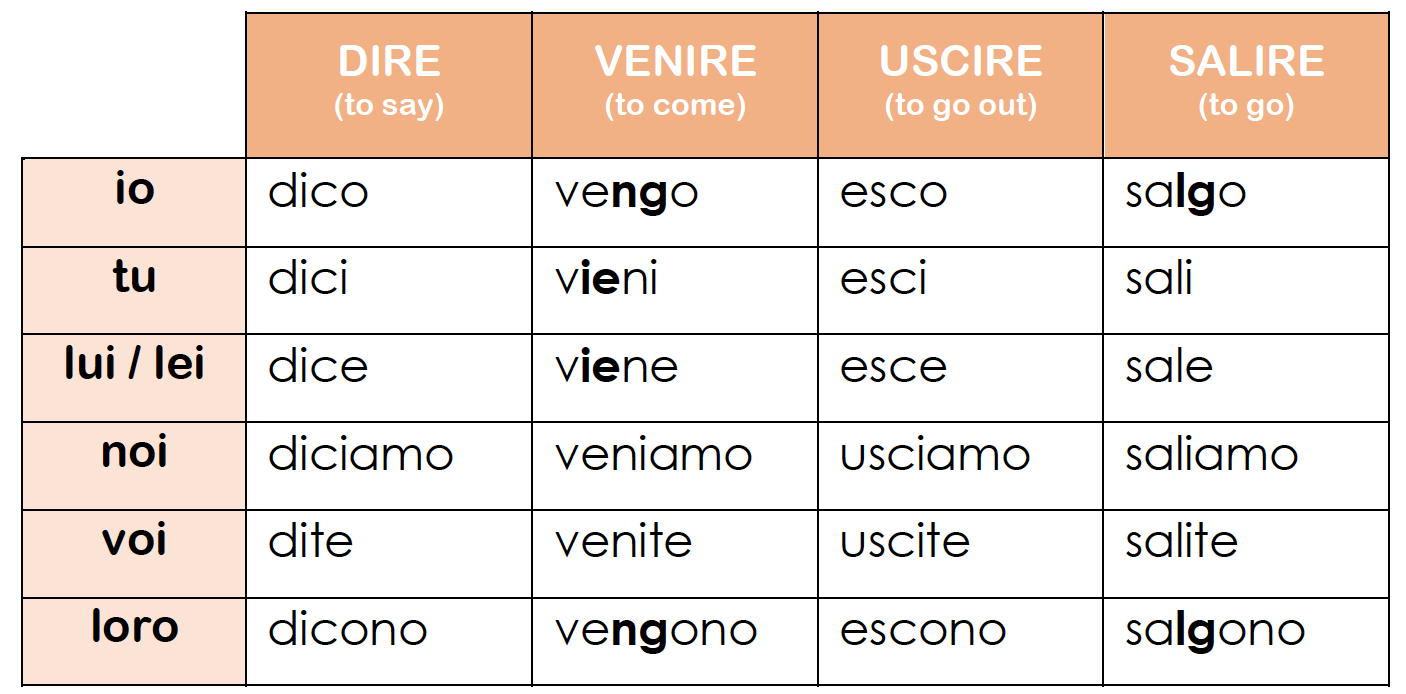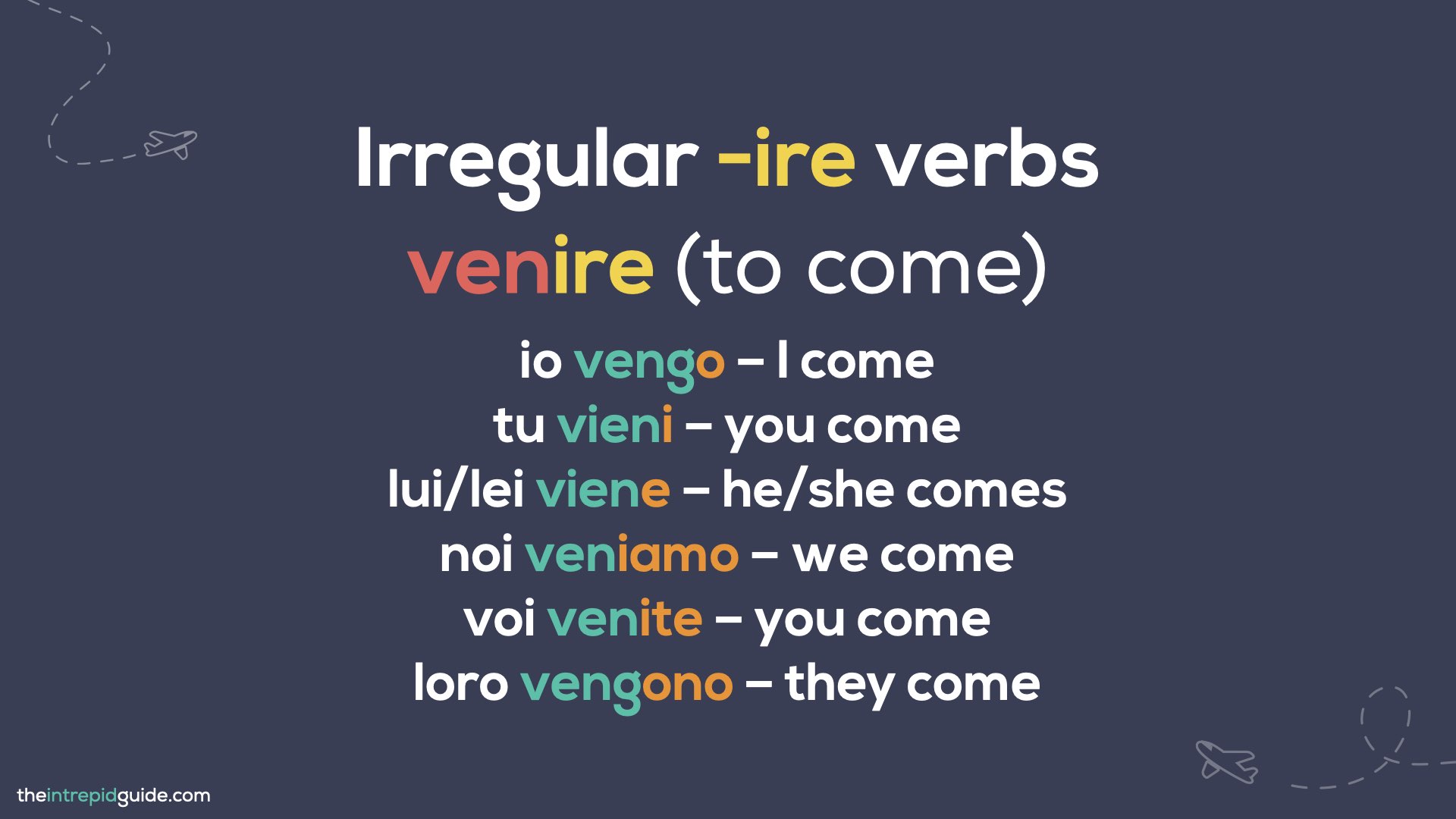
The Italian Verb Files Venire The Happy Maple Language Co
Venire is an irregular verb and is the equivalent of the English "to come". It means to come from, to arrive, to occur, and is sometimes used in a welcoming tone too (e.g. Vieni! - Come on in!) Venire is an intransitive verb - therefore it lacks a direct object, and its compound tenses are conjugated with the auxiliary essere.
:max_bytes(150000):strip_icc()/TuscanyFriends-58bef5f45f9b58af5c8fa0b1.jpg)
How to Conjugate the Verb "Venire" in Italian
Italian: venire Italian verb 'venire' conjugated Cite this page | Conjugate another Italian verb Nominal Forms Infinito: venire Participio presente: venente Gerundio: venendo Participio passato: venuto Nominal Forms Infinito: essere venuto Participio presente: essente venuto Gerundio: essendo venuto Indicativo Presente Passato prossimo Imperfetto

Venire Conjugation use venire in Italian Learn Italian Go
How to conjugate Italian verb 'venire'. Venire is an irregular, third conjugation verb that means to come, to arrive. Non dimenticarti di venire a trovarmi ( Don't forget to come and visit me) Di solito veniamo in questo posto ogni sera ( Usually, we come to this place every night) Il papa dice che arriverà domani ( Dad says is arriving.

All You Need to Know About the “Venire” Conjugation in Italian Italian Vocabulary, Italian
VENIRE means "to come" in English. But, as with many Italian verbs, it can be used in a variety of different ways. VENIRE is irregular in many tenses such as the present, the future, its past participle (venuto), etc. So when you are conjugating it, double check if you are unsure. VENIRE - Italian Verb Conjugation Table Click to download for FREE!

VENIRE Conjugation Italian Italian Verb COME YouTube
Venire is an irregular verb of the third conjugation. Being a verb of movement, we generally apply it in the meaning of heading to, hailing from, descending from, occurring and arising. Venire principally translates the English verb to come. Examples: Vieni o no? Il treno sta per partire. Are you coming or not? The train is about to leave.

Italian Verb "VENIRE" (10 of its most common USES Present Tense) YouTube
'venire' conjugation table in Italian Go to the definition page of venire Indicative Subjunctive Imperative Infinitive venire Past Participle venuto Gerund venendo Indicative Present io vengo tu vieni lui/lei/Lei viene noi veniamo voi venite loro vengono Imperfect io venivo tu venivi lui/lei/Lei veniva noi venivamo voi venivate loro venivano Future

learn Italian Verb venire Test Your Knowledge with quiz YouTube
Venire is one of the most common and useful Italian verbs. It usually means "to come": Per esempio… Venire can also mean "to happen" or "occur." Venire present tense conjugations Venire is an irregular - ire verb: Related lessons Antonym: andare (to go) Subject pronouns Top 11 irregular verbs En español Venir En français Venir

The Italian Verb Files Essere The Happy Maple Language Co
Venire is an Italian irregular verb meaning to come. Venire appears on the 100 Most Used Italian Verbs Poster as the 11st most used irregular verb. Venire Conjugation: Present Tense *Irregular forms in bold. Venire Passato Prossimo The passato prossimo of Venire is formed by combining the auxiliary verb essere with the past participle venuto.

More on Italian irregular verbs in present tense — Cuore italiano
Here's a list of the most often-used prepositions with these verbs: Andare (to go): Venire (to come): Da + place (e.g., vengo da casa, I'm coming from home) Partire (to leave): Da + place (e.g., parto da casa, I'm leaving from home) Per + destination (e.g., parto per il lavoro, I'm leaving for work) VERBO ANDARE.

Conjugation Venire 🔸 Italian verb in passato prossimo, imperfetto Conjugate in all tenses and
The Italian verb "venire," meaning "to come," is a versatile and frequently used verb in the Italian language. Mastering the conjugation of "venire" is crucial for expressing movement, arrival, and a variety of other meanings in different contexts.

How to Conjugate Italian Verbs in 3 Simple Steps [Italian for Beginners] (2022)
If you're having difficulty with the English verb venire, check out our online English lessons!Vatefaireconjuguer is a free online conjugator created by Gymglish. Founded in 2004, Gymglish creates fun, personalized online language courses: English course, Spanish course, German course, French course, Italian course and more. Conjugate all English verbs (of all groups) in every tense and mode.

The Italian Verb Files Venire The Happy Maple Language Co
Both of these verbs are used to talk about movement towards a direction. Andare means to go and you will use it to talk about when you are going toward a person or a place. ANDARE A when you are talking about places. Giovedì vado da Maria per mangiare una pizza insieme - On Thursday I will go to Maria's house to eat a pizze together.

VENIRE ITALIAN IRREGULAR VERB YouTube
After ANDARE, here's another irregular verb you can't do without: VENIRE - to come. Learn how to conjugate it in the most common tenses and listen to idioms.

venire to come venire italian parliamoitaliano impariamoitaliano
Venire is an irregular verb of the third conjugation that translates most simply to the English "to come," but whose uses in Italian include amounting to, turning out, descending from, manifesting or occurring, hailing from, and arising or coming to.

learn Italian Verb 'venire' Present Tense Conjugation YouTube
In Italian, the verb venire , which means to come , is much more common than in English. As a result, most English speakers use the verb vado or, more generally, the verb andare as a default. This will sound a little strange because the verb venire is required in many situations.

All You Need to Know About the “Venire” Conjugation in Italian
Venire Definition: To come, arrive Venire Can Also Mean Originate/come from Comes out/turns out Occur/happen Note: Venire is an irregular -ire verb, so you'll need to memorize the conjugation on your own. Italian Venire Conjugation Venire Presente Conjugation: Venire Presente Examples Chi viene con me? = Who is coming with me?